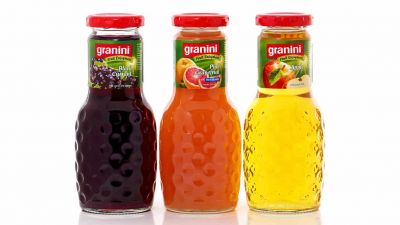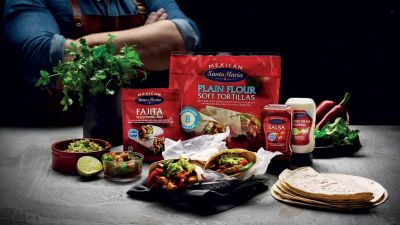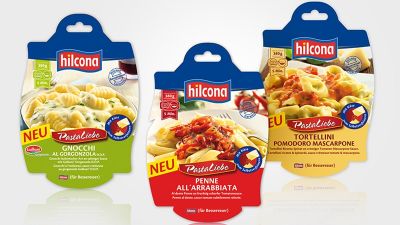Project Description
The SpecPDM application platform from SpecPage offers Santa Maria a single database for raw materials, formulas, packaging, labeling and specifications, and a tool to standardize internal approval processes. At any point in time, the latest information about all products is available allowing Santa Maria to react to market demands in a faster and more flexible manner by leveraging existing resources.
Santa Maria is part of the World Foods & Flavouring Division of Paulig Group and has a strong focus on ethnic foods and flavouring. The Santa Maria brand has been a long-standing market leader in the Nordic region (Sweden, Norway and Denmark) and is active in more than 34 markets across Europe. In 2014, the World Foods & Flavouring Division had a turnover of €308 million and approx. 850 employees.
The strategy for the future is crystal clear: Santa Maria wants to become the leading flavouring and food concept provider in Northern Europe. A fantastic development that stems from a company constantly providing the best in spices and exciting seasonings from around the world. Santa Maria never stops traveling, collecting ideas and inspiration, and cultivating its knowledge of spices.
A journey of success
It all started in Gothenburg in 1911 when Frans Leon Berg opened up a small tea and spice shop. He ran the shop until his death, when the families Nordlund and Falk took over and renamed it to ‘Nordfalks’. In 1946, Armin Mattsson and his colleague, Hugo Lundgren, purchased a share in the company and laid the foundation for what Santa Maria is today. Nordfalks grew, and over time, became the largest spice company in Sweden.
In 1968, Matsson’s son, Lars Olof Mattsson, took over and led the company to achieve a turnover of €854,000 through its sale of spices. When he resigned as CEO 36 years later, Santa Maria generated more than €214 million per year. There were many high points during that period, the introduction of Santa Maria Tex Mex during the ’90s being the most important of all. When Santa Maria introduced this concept, the market for Mexican food in Sweden was rather small. At the time, Swedes ate roughly €7.5 million worth of Tex Mex food per year – a value which today is at €132 million in Sweden alone and €296 million in the Nordic region.
To manage information related to recipe and product development as well as quality control, Santa Maria was using a mix of software tools, an internally-built system as well as Microsoft Office applications. Product data was also handled in different languages to support the local requirements for all target markets, which made it difficult to update and share information internally and externally. For a major producer like Santa Maria, maintaining product data in different departments can result in time-consuming manual processes and limited traceability. Therefore, Santa Maria recognized the need to make better use of know-how and resources to manage product development, and was looking to identify a single solution that can be implemented across all World Foods & Flavouring Division sites. The decision was made in favor of SpecPage, a global provider of product development and information solutions for the F&B industry and leader in this field.
A central data system for all production plants
The SpecPDM application platform from SpecPage offers Santa Maria a single database for raw materials, formulas, packaging, labeling and specifications, and a tool to standardize internal approval processes. At any point of time, the latest information about all products is available allowing Santa Maria to react to market demands in a faster and more flexible manner by leveraging existing resources. «Thanks to SpecPDM, we now have a central system for all product data», says Anette Zetterquist, Taste Development Specialist at Santa Maria. «The workflows throughout our division have also been simplified and improved. As a result, we are developing our products more efficiently and have eliminated laborious paperwork.» The SpecPDM software not only assists Santa Maria in managing data for recipes and specifications, calculation and reporting modules have also been implemented. «SpecPDM enables us to simulate recipe variations with different ingredients and nutritional values, providing realistic price calculations at the same time», Zetterquist adds.

Santa Maria – World foods well seasoned
«Thanks to SpecPDM, we now have a central system for all product data. The workflows throughout our division have also been simplified and improved. As a result, we are developing our products more efficiently and have eliminated laborious paperwork.»
Bridging product lifecycle management and enterprise resource planning
Microsoft Dynamics AX is an extremely powerful Enterprise Resource Planning (ERP) application to master core business processes such as purchasing, production and sales. However, to manage company- wide processes and ensure data traceability, other applications need to be set up to handle all the specific business functions that ERP is not able to.
Product Lifecycle Management (PLM) or Product Data Management (PDM) and ERP systems are complementary tools that can communicate with each other. SpecPDM provides an overview of all projects and portfolios, and allows for optimal synchronization with ERP solutions, such as Microsoft Dynamics AX, to maintain data efficiently and safely across a business. While SpecPage’s SpecPDM solution is designed to manage a product from concept, develepment to production, ERP systems support financial planning, warehousing, distribution and reporting. Companies that choose not to bridge their ERP and PLM solutions may not be able to get the full value out of their technology investments.
Santa Maria’s Microsoft Dynamics AX has been integrated with SpecPDM via a standardized middleware interface to exchange master data, prices and recipes bidirectionally. SpecPDM’s information protocol makes any data accessible through the interface making the integration very flexible and easy to maintain. SpecPDM is also linked with Santa Maria’s web platforms to ensure product information is kept up to date. Modifications and extensions, as well as further connections to other applications, can be arranged regardless of release updates of the SpecPDM or Microsoft Dynamics solutions.
«It is important that we can utilize our expertise and resources across the World Foods & Flavouring Division. This is why identifying a product specification and development software that is compatible with our existing ERP system was a key factor», explains Zetterquist. «The latest product information is now consolidated and readily available in appropriate departments to increase productivity».
System integration and data consolidation share common goals: they aim to eliminate multiple data entry and unnecessary errors, simplify internal processes and improve cross-functional transparency and traceability. Bringing together robust PLM and ERP solutions improves corporate productivity and gives manufacturers such as Santa Maria a competitive advantage in the long term.
Communicating with distributors and retailers through GDSN
Before Santa Maria’s seasoning and food products are ready to be introduced into the market, legally compliant product labels, specifications and ingredients lists need to created. SpecPDM, as a centralized master data repository, can be integrated with the GS1 Global Data Synchronization Network (GDSN), a network of over 30 certified data pools, to which more than 35,000 companies are connected. This enables Santa Maria to publish and exchange consistent product information – including specifications giving details about nutritional values and allergens – with suppliers, distributors and retailers. «With SpecPage’s GDSN Guide, we have a valuable tool at hand that facilitates direct communication with our customers and trade partners. Standardized formats and processes save time and avoid errors when publishing legal product information, and our database is simultaneously refreshed when our suppliers update their specifications», comments Zetterquist.
Directly from the SpecPDM software, product data is prepared, verified and published via SpecPage’s online catalog, the GDSN Guide. Once specifications are loaded into a data pool, they are automatically made available to trade partners rather than sent to them individually – this reduces distribution costs and guarantees consistent data quality. Santa Maria currently publishes product data across six European countries through nine interoperable GDSN data pools; the company can determine which information is sent to each customer. Specifications are standardized according to relevant regulations, however, SpecPage assists Santa Maria in adapting product information to meet specific requirements of target countries or trade partners.
Specifications are created once per Global Trade Item Number (GTIN), unless the product has various formulations or names in different markets.
GDSN is increasingly becoming an industry standard. More robust information and increased data attributes improve the visibility and searchability of products for distributors and retailers as they search the web and their back-end ordering systems.
Collecting legal information from suppliers
Santa Maria is also using SpecPage’s Supplier’s Guide to obtain legally binding product specifications from suppliers, including information about traded goods, raw materials and packaging. Their suppliers capture data online and can attach required certifications according to Santa Maria’s requirements, which can then be shared with the manufacturer at the touch of a button. «Although our suppliers need to take time to fill out our specification questionnaires, it will take them less time in the future to update the required information», says Zetterquist. With the help of Supplier’s Guide, Santa Maria receives legally binding product specifications as suppliers provide an electronic signature. Audit requirements are also met thanks to a built-in document management system with integrated data history.
Suppliers record product specifications only once and can even create individual specifications for one product to meet the specific needs of different manufacturing companies.
There is no doubt that an implementation project and data consolidation can bring their own challenges, however, when product development and information solutions are well integrated they provide a quick return on investment. When overall efficiency and data quality are improved, food producers can drive innovation and profitability ensuring long-term success.
«As with any technological project, much work went into migrating data from our four previous systems from three different countries, as well as data cleaning. We’re glad to have all information in one place now, allowing us to focus on delivering high- quality flavours and seasoning to our customers», concludes Zetterquist.

Santa Maria – World foods well seasoned
«With SpecPage’s GDSN Guide, we have a valuable tool at hand that facilitates direct communication with our customers and trade partners.»
More Customer Success Stories
Rester en contact
Contactez-nous pour obtenir plus d’informations sur nos produits et services.
Food for Thought E-Book
Apprenez à bâtir une base qui soutient le changement et stimule la croissance!















